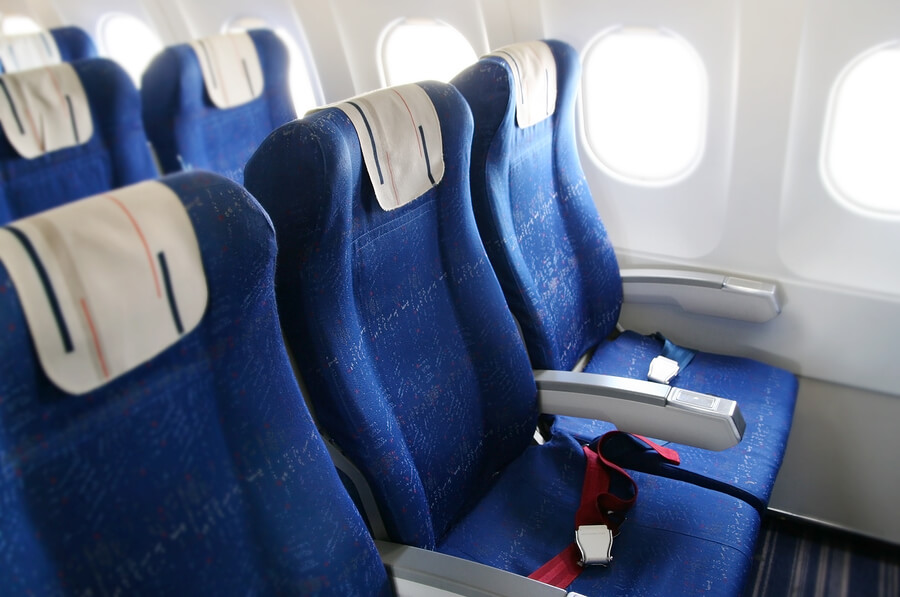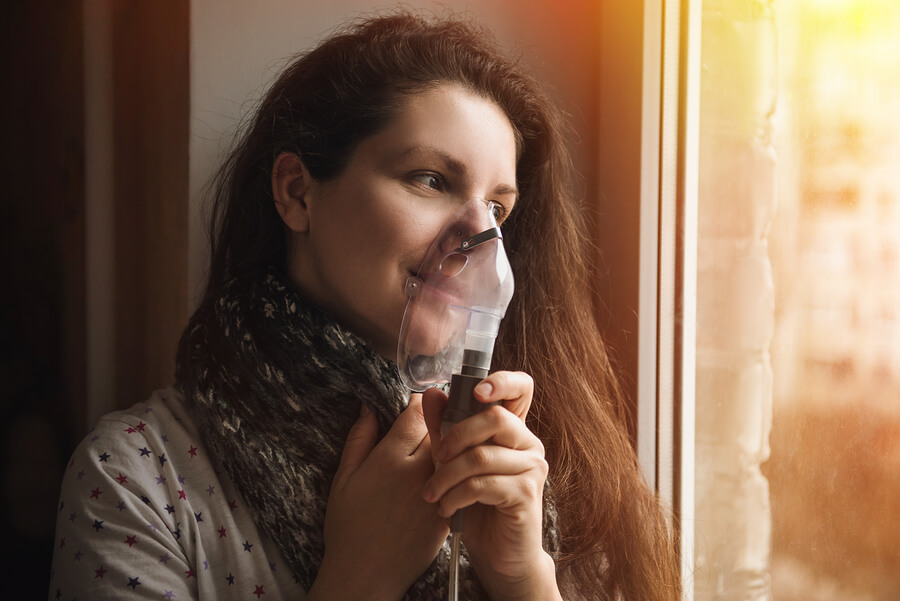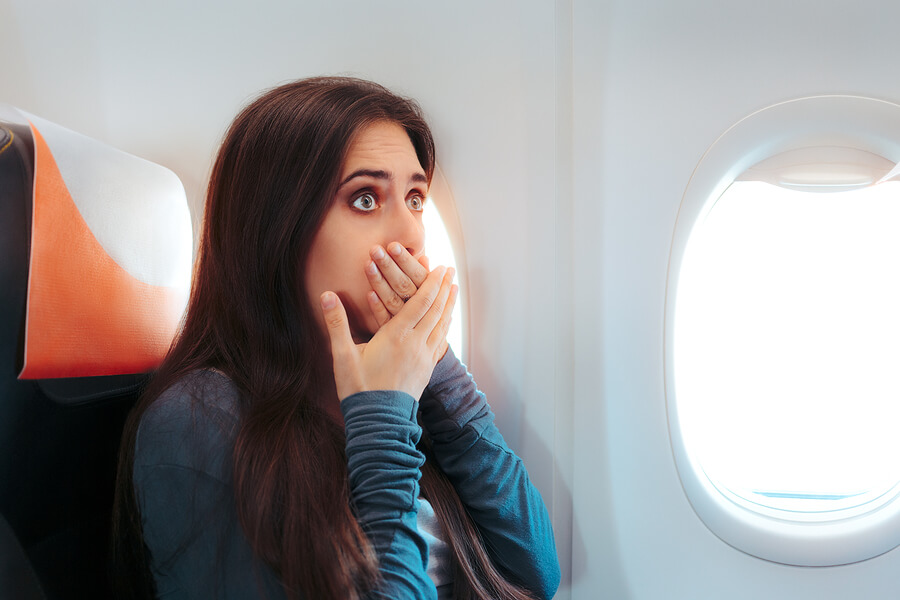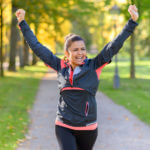Table of Contents
Top 10 Ways to Avoid Getting Sick on an Airplane: Your Guide to Healthy Flying
Air travel has undoubtedly made the world more accessible and connected. However, the confined space and close proximity to other passengers during flights can increase the risk of catching illnesses. Whether you're a frequent flyer or embarking on a long-awaited vacation, safeguarding your health should be a top priority. In this comprehensive guide, we will explore effective strategies to minimize the risk of getting sick while flying. From pre-flight preparations to in-flight practices, we've got you covered. Let's dive in!
Strengthening Your Immune System: Preparing for a Healthy Flight Experience
Ensuring your well-being during air travel starts well before you board the plane. By taking proactive steps to strengthen your immune system, you can minimize the risk of falling ill during your journey. Let's delve into the pre-flight preparations that will help fortify your defenses against potential health hazards.
Get Vaccinated and Consult Your Doctor
Vaccinations are an essential component of preventive healthcare. Before embarking on your trip, ensure that your routine vaccinations are up to date. Additionally, consider any destination-specific vaccinations recommended by healthcare authorities. Consulting with your doctor or a travel medicine specialist will provide valuable insights into necessary immunizations or medications based on your travel plans.
Maintain a Healthy Lifestyle
The foundation of a robust immune system lies in leading a healthy lifestyle. Prioritize habits that promote overall well-being, such as getting adequate sleep, eating a nutritious diet, and engaging in regular physical activity. Aim for at least 7-8 hours of quality sleep per night to support your immune system. Consume a balanced diet rich in fruits, vegetables, whole grains, lean proteins, and healthy fats. Regular exercise not only enhances your physical fitness but also contributes to a resilient immune system.
Stay Hygienic and Practice Good Hand Hygiene
Maintaining proper hygiene is crucial for reducing the risk of illness. The most effective measure you can take is practicing good hand hygiene. Wash your hands thoroughly with soap and water for at least 20 seconds, especially before eating, after using the restroom, and after touching surfaces in public areas. If soap and water are unavailable, use an alcohol-based hand sanitizer with a minimum alcohol content of 60%. Make it a habit to avoid touching your face, as this can transfer germs from your hands to vulnerable entry points like your eyes, nose, and mouth.
Pack a Wellness Kit
Equipping yourself with a well-stocked wellness kit is a proactive measure to support your health during the flight. Include essential items that can aid in maintaining a hygienic and comfortable environment. Your kit may contain disinfecting wipes to clean surfaces, hand sanitizer to ensure hand hygiene, tissues for respiratory etiquette, lip balm to combat dryness, a nasal saline spray to moisturize nasal passages, and over-the-counter medications for common symptoms like headaches or congestion. Tailor the contents of your wellness kit to your personal needs and any pre-existing medical conditions.

In-Flight Practices: Safeguarding Your Health and Minimizing the Risk of Illness
Once you're comfortably settled onboard the airplane, it's time to implement additional measures to minimize your exposure to germs and maintain a healthy environment throughout the flight. By following these in-flight practices, you can proactively protect yourself and reduce the risk of falling ill.
1. Choose Your Seat Wisely
Selecting the right seat can make a significant difference in minimizing contact with potential sources of germs. Window seats provide a physical barrier on one side, reducing exposure to passengers passing through the aisle. Additionally, seats away from high-traffic areas, such as restrooms or galley areas, can help minimize contact with fellow travelers.
2. Disinfect Your Seat Area
Once settled into your seat, take a moment to disinfect your immediate surroundings. Use disinfecting wipes to clean the tray table, armrests, seatbelt buckle, and any other surfaces you may come into contact with during the flight. This simple yet effective step helps eliminate germs and provides an additional layer of protection.
3. Keep Air Vents Open
Contrary to popular belief, the air circulating within the airplane cabin is continuously filtered and refreshed. To enhance the ventilation around your seat, keep the overhead air vent open. This creates a personal airflow barrier that helps circulate air and can potentially reduce the concentration of airborne particles around you.
4. Stay Hydrated
Airplane cabins have low humidity levels, which can lead to dehydration. Combat this by staying hydrated throughout the flight. Drink plenty of water to keep your body hydrated and your mucous membranes moist. It's advisable to bring a refillable water bottle and ask the cabin crew to fill it periodically. Limit your consumption of caffeine and alcohol, as they can contribute to dehydration.
5. Practice Respiratory Etiquette
Maintaining proper respiratory etiquette is crucial for preventing the spread of germs. Cover your mouth and nose with a tissue or the inside of your elbow when coughing or sneezing. This helps contain respiratory droplets and reduces the risk of spreading infectious particles. Dispose of used tissues immediately and follow up with thorough handwashing or hand sanitizing.
6. Minimize Contact with High-Touch Surfaces
Be mindful of frequently touched surfaces within the aircraft, such as door handles, lavatory fixtures, and handrails. Whenever possible, use a tissue or a barrier, like the inside of your sleeve or a glove, to avoid direct contact. By employing this precautionary measure, you reduce the risk of transferring germs from these surfaces to your hands.
7. Avoid Touching Your Face
Throughout the flight, refrain from touching your face, especially your eyes, nose, and mouth. Our hands come into contact with various surfaces that may harbor germs, and touching your face can provide an entry point for those germs to infect your body. Practice conscious awareness and avoid this habit to minimize the risk of germ transmission.

Post-Flight Care: Supporting Your Recovery
As your flight comes to an end and you step off the plane, it's important to maintain your health-conscious mindset. By incorporating these post-flight care practices, you can support your body's recovery and ensure a smooth transition after your travel experience.
Monitor Your Health
Stay vigilant and monitor your health in the days following your flight. Be attentive to any symptoms that may develop, such as coughing, fever, fatigue, or body aches. If you experience any concerning symptoms, seek medical attention promptly. It's crucial to inform your healthcare provider about your recent travel history, as this can help them assess and diagnose any potential travel-related illnesses.
Rest and Recover
Allow yourself sufficient time to rest and recover from the physical and mental demands of travel. Long journeys and changing time zones can disrupt your sleep patterns and leave you feeling fatigued. Prioritize adequate sleep and relaxation to support your body's immune system in its efforts to ward off potential infections. Taking the time to recharge will contribute to a smoother transition back to your regular routine.
Maintain Healthy Habits
Consistency in maintaining healthy habits is key to sustaining your well-being after your flight. Continue practicing good hygiene habits, including regular and thorough handwashing with soap and water for at least 20 seconds. This helps eliminate any germs you may have come into contact with during your journey. Additionally, maintain a nutritious diet filled with fruits, vegetables, whole grains, lean proteins, and healthy fats. Adequate hydration is also crucial, so remember to drink plenty of water to replenish your body's fluid levels.
Engage in Light Exercise and Stretching
After a prolonged period of sitting during your flight, it's beneficial to engage in light exercise and stretching to get your body moving again. Take a walk, do some gentle stretching exercises, or practice yoga to help relieve muscle tension and improve circulation. These activities promote relaxation and can enhance your overall post-flight recovery.
Combat Jet Lag
If you have traveled across multiple time zones, jet lag can disrupt your sleep-wake cycle and leave you feeling groggy and disoriented. To combat jet lag, try to adjust to the local time as soon as possible. Get exposure to natural daylight, stay hydrated, and avoid excessive caffeine and alcohol, as they can further disrupt your sleep patterns. Gradually adjust your sleep schedule to align with the new time zone to help your body adapt more smoothly.
Take Precautions to Prevent Illness Spread
Even after your flight, it's important to continue practicing good respiratory hygiene. Cover your mouth and nose with a tissue or your elbow when coughing or sneezing, dispose of used tissues properly, and wash your hands regularly. By doing so, you can minimize the risk of spreading any potential illnesses to others.

Frequently Asked Questions (FAQs) – Ways to Avoid Getting Sick on an Airplane
Q: How can I boost my immune system before flying?
A: Prioritize a healthy lifestyle by getting enough sleep, eating a nutritious diet, and engaging in regular exercise. Stay hydrated, manage stress, and consider taking immune-boosting supplements or vitamins after consulting with your healthcare provider.
Q: Are there any specific vaccinations I should get before traveling by plane?
A: Routine vaccinations should be up to date. Additionally, consult with your doctor or a travel health specialist to determine if any specific vaccines are recommended for your destination, taking into account the duration and purpose of your trip.
Q: Should I wear a mask during the flight?
A: Wearing a mask can provide an extra layer of protection against airborne germs. It is particularly advisable during periods of increased illness outbreaks or if you are experiencing symptoms of illness. Follow guidelines and regulations set by the airline and local health authorities.
Q: How can I avoid catching a respiratory illness from other passengers on the plane?
A: Practice good hand hygiene by washing your hands frequently with soap and water for at least 20 seconds or using an alcohol-based hand sanitizer. Avoid touching your face, especially your eyes, nose, and mouth. Maintain respiratory etiquette by covering your mouth and nose with a tissue or your elbow when coughing or sneezing.
Q: Are there certain seats on the plane that are less likely to expose me to germs?
A: Window seats can minimize contact with other passengers and reduce exposure to aisle traffic. Additionally, seats located away from high-traffic areas, such as the lavatory or galley, may provide a lower risk of exposure to airborne particles.
Q: How can I ensure that the air I breathe on the plane is clean?
A: Airplane cabins are equipped with high-efficiency particulate air (HEPA) filters that continuously circulate and filter the air. Keeping the overhead air vent open helps improve ventilation around your seat, creating a personal airflow barrier.
Q: Should I disinfect my seat and surrounding area before sitting down?
A: Yes, it is a good practice to use disinfecting wipes to clean high-touch surfaces such as the tray table, armrests, seatbelt buckle, and entertainment controls. This reduces the risk of coming into contact with germs left by previous passengers.
Q: How can I stay hydrated during a long flight?
A: Airplane cabins have low humidity levels, which can lead to dehydration. Drink plenty of water throughout the flight and avoid excessive caffeine and alcohol, as they can contribute to dehydration. Consider bringing a refillable water bottle to stay hydrated and reduce plastic waste.
Q: Can I get sick from the recycled air in the airplane cabin?
A: The air in the cabin is constantly refreshed and filtered through high-efficiency filters, removing a majority of particles, including viruses and bacteria. The risk of getting sick from recycled air is generally low.
Q: What should I do if I feel unwell during or after the flight?
A: Monitor your symptoms and seek medical attention if necessary. Inform your healthcare provider about your recent travel history. Rest and take care of your body by staying hydrated, getting enough sleep, and maintaining good hygiene habits.
Conclusion
Traveling by air doesn't have to be synonymous with getting sick. By implementing these preventive measures, you can significantly reduce your risk of falling ill during your journey. Remember to prepare in advance, prioritize hygiene, practice respiratory etiquette, and maintain healthy habits. Your health and well-being deserve the utmost care, even when you're soaring at 30,000 feet. Happy and healthy travels!




Comments
Loading…